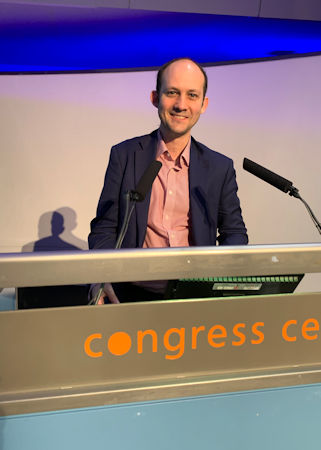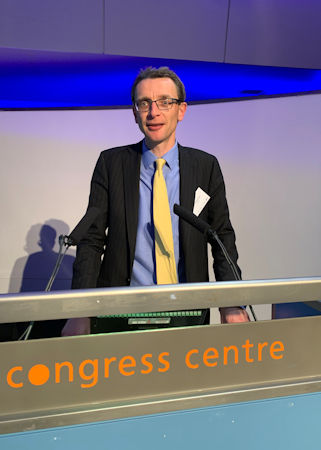The refuse derived fuel market faces a period of uncertainty in coming months, a conference held in London yesterday (29 November) was told by a number of speakers.
Jacob Hayler, executive director of Environmental Services Association, and Adrian Judge, director of Tolvik Consulting, addressed an audience of more than 200 people involved in the sector at the annual RDF conference.
Mr Judge said: “The market does face a pretty uncertain future, but I think there are some positive opportunities and things to grab hold of as well as perhaps that slight sense of doom around some of the uncertainty around the export markets.”
Both suggested a key factor impacting the market was a proposed Dutch import tax.
Mr Hayler said: “It’s a really interesting and challenging time with some really near-term challenges coming up.
“We’ve got the Dutch import tax and Brexit, two really big short-term issues that are going to loom large in 2020.”
Netherlands
Tax proposals have been announced by the Dutch government with the goal of reducing the CO2 emissions associated with waste management.
Though still to pass the senate, an RDF import tax of €32 per tonne is foreseen as of 1 January 2020.
Mr Judge said: “There’s going to be some interesting debates about how much to invest for the future of a market which was very certain when it was the export market, which feels a little bit more uncertain between the UK’s domestic demand and the size and scale of the export market in the light of the tax.”
Documents released when the Dutch government proposed the taxes in September suggested around 1.9 million tonnes of ‘foreign’ waste is incinerated in Holland’s energy from waste facilities, roughly 25 per cent of the country’s overall capacity.
This includes a large proportion from the UK.
Mr Hayler said: “How much material will end up diverted into UK landfills because we don’t have spare capacity here in order to divert that material to?”
Politics
Mr Hayler told the audience he believed the energy from waste and RDF market appeared an unattractive topic for politicians, saying the industry needed to change the negative perceptions with which it was associated.
He said: “Energy from waste still seems to be toxic for politicians.”
He also criticised DEFRA’s approach to the energy from waste sector, arguing that the government had neglected the sector and its need in recent years for more facilities.
He said: “As an industry, we don’t want to groan, but we have been telling Defra for years that we need more domestic facilities.
“Where is the support? Why are you guys so terrified of standing up and saying we need more facilities in this country?”
Environment
The conference also heard from Libby Peake, senior policy advisor at The Green Alliance, who highlighted some of the sustainability issues Britain is currently facing, including plastic pollution, the search for alternatives to plastic and the consequences of burning waste.
With reference to the idea of a ‘circular economy’, Ms Peake suggested there were greener alternatives to the country’s current economic model.
She noted that the circular economy featured in several of the manifestos released by political parties in the last couple of weeks.
She said: “We think that there is a lot of opportunity for improving the economy by changing how we design and use materials and products.”
(The conference was organised by letsrecycle.com in partnership with the RDF Industries Group.)
The post RDF markets facing challenge of Dutch tax appeared first on letsrecycle.com.
Source: letsrecycle.com Waste Managment




